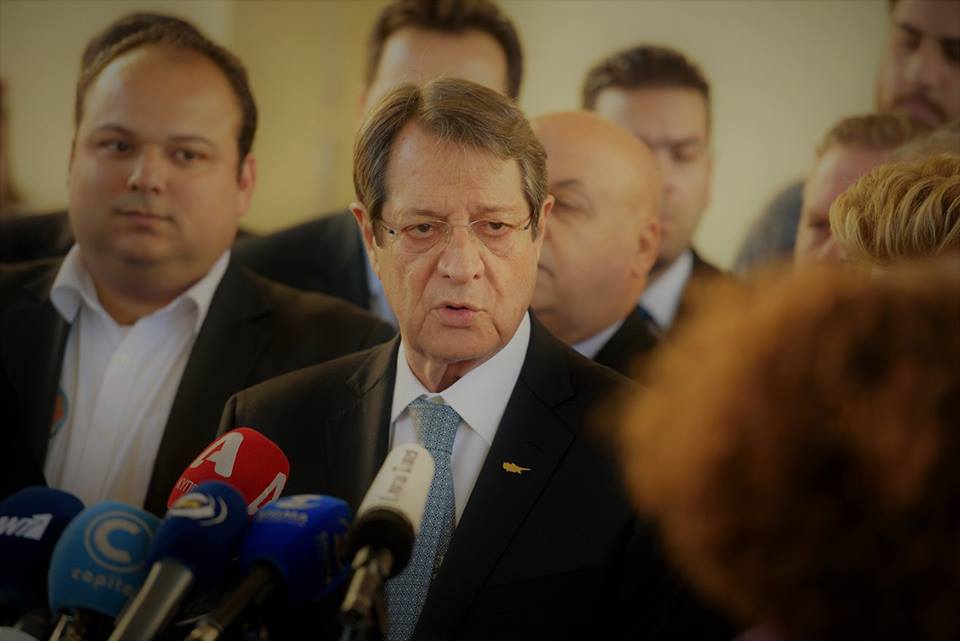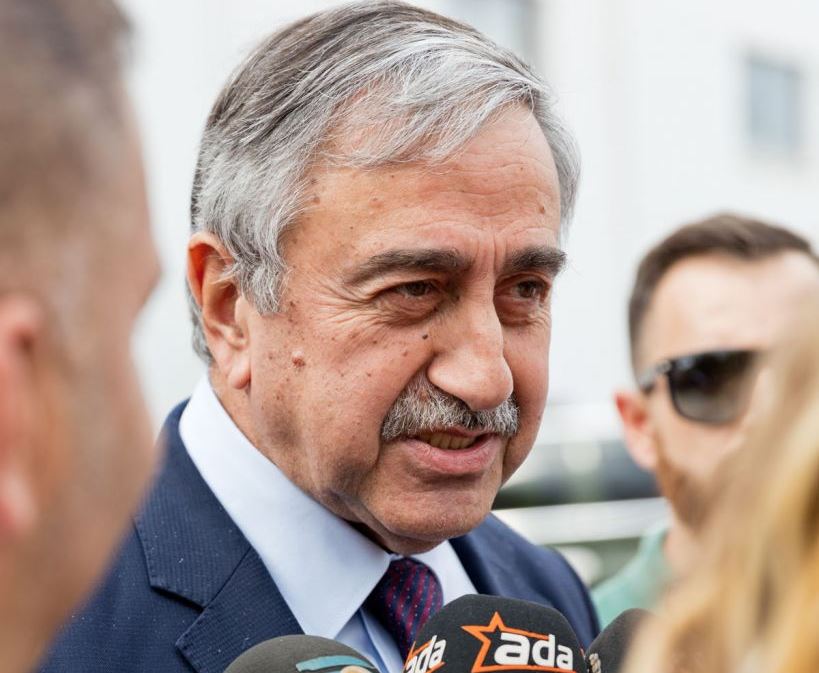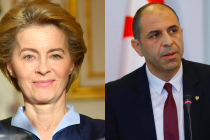Turkish Republic of Northern Cyprus (TRNC) President Mustafa Akıncı has expressed his “regret” and “dismay” after Greek Cypriot political party leaders rejected his offer to work together to exploit potential offshore energy resources by claiming that a solution to the Cyprus problem must come first.
Mr Akıncı accused the Greek Cypriot side of acting in “complete disregard of the Turkish Cypriot people” after it dismissed a plan to establish a joint committee on hydrocarbons that would turn the issue “from an area of tension and conflict” into one of “efficient cooperation”.
The Greek Cypriot government, which claims to represent the whole of Cyprus, has granted numerous licences to international energy firms to explore areas of the sea it regards as its “exclusive economic zone” (EEZ) without consulting with the Turkish Cypriot side first.
They have so far refused all offers of cooperation, claiming that it could amount to “recognition” of the TRNC, and have instead pledged to stash away a share of any revenues in a “sovereign fund” for “future generations”.
In response, Turkey and the TRNC have launched their own research and drilling operations.
On Saturday, 13 July, Mr Akıncı announced that he had sent a formal proposal to Greek Cypriot leader Nicos Anastasiades, via United Nations officials, for the establishment of a joint committee on hydrocarbons.
Greek Cypriot reasons for rejecting Akıncı’s hydrocarbons proposal ‘flies in the face’ of UN advice: concerns about TRNC recognition “should not in themselves constitute an insurmountable obstacle to increased cooperation”
“The proposal envisages a joint committee to be composed of an equal number of members coming from the two communities, under the auspices of the UN, as well as the EU taking part as an observer,” a statement published on the TRNC Presidency’s website said.
“The proposal also includes the details regarding the structure of the committee, its aims and mandate, as well as building a fund and ways on how to utilise it.”
A copy of the plan was also sent to UN Secretary-General Antonio Guterres, European Commission President Jean-Claude Juncker, and High Representative of the EU for Foreign Affairs and Security Policy Federica Mogherini for “briefing purposes”, the statement concluded.
Mr Anastasaides met with senior Greek Cypriot politicians three days later to discuss the plan, which they flatly rejected, sparking a rebuke from Mr Akıncı.

“I would like to express my regret over the negative stance collectively taken by the Greek Cypriot political party leaders, who came together with the Greek Cypriot leader Anastasiades, with regard to our proposal on hydrocarbons,” he said on Tuesday.
“I was also dismayed by the reasons put forward by the Greek Cypriot side in rejecting our proposal which clearly aims at de-escalating the heightened tension and turning the hydrocarbons issue into an area of cooperation between the two communities.
“In the joint [Greek Cypriot] statement made, it is claimed that our proposal ‘deviates from the essence of the Cyprus problem and the need for immediate resumption of substantive negotiations’, as well as that it ‘contains provisions that do not serve the interests of the Cypriot people as a whole’.”
President Akıncı: “Collaboration on hydrocarbons, within the framework of a joint committee, will help to pave the way for a solution, not distract from it”
Mr Akıncı said that it was “not the Turkish Cypriot side which is responsible today for not having a results-oriented negotiation process towards a settlement, but the Greek Cypriot side that adamantly opposes the political equality and effective participation of the Turkish Cypriots”.
He continued: “Contrary to the claims by the Greek Cypriot side, our proposal on hydrocarbons envisages the common benefit and cooperation of both communities.
“The Greek Cypriot side, on the other hand, is in an attempt to act unilaterally over the issue in complete disregard of the Turkish Cypriot people.
“Collaboration on hydrocarbons, within the framework of a joint committee, will help to pave the way for a solution, not distract from it.
“Unfortunately, the Greek Cypriot leadership prefers a politics of tension rather than facilitating the negotiation process through enhancing cooperation and dialogue.
“It is evident that this attitude does in no way serve peace and stability in Cyprus as well as in the region.”
Defending the Greek Cypriot side’s negative attitude to President Akıncı’s proposal, Mr Anastasiades’s undersecretary Vasilis Palmas said the move was an “attempt by the Turkish Cypriot leader to shift from the substance, which is the solution of the Cyprus problem”, media reports said.
Mr Anastasiades will write back to Mr Akıncı “in about a week” with his response, Mr Palmas was quoted as saying, but the letter would not contain a “counter-proposal” as that “involved the risk of equating a recognised state [and a] member of the international community, with a non-state”.
“If anything else must be added in the letter it will not suggest ‘talks between two states’,” he stressed.

The stance expressed by Mr Palmas flew in the face of warnings from UN chief Guterres, who said that concerns over the recognition of the TRNC should not be used as an excuse for failing to cooperate with the Turkish Cypriots.
In his latest report to the UN Security Council on Cyprus – in which he called on peacekeeping operations to be extended for another six months – Mr Guterres said that “local and international actors continue to be confronted with challenges and obstacles linked to the status of the north and concerns relating to ‘recognition’.”
He said that while UN policy on Cyprus is “maintained” and “decisions of the Security Council on the matter are upheld”, concerns about recognition “should not in themselves constitute an insurmountable obstacle to increased cooperation”.
Mr Gutteres urged both sides to “devise creative ways of overcoming obstacles with a view to achieving meaningful progress and delivering tangible benefits to their communities, without prejudice to the issue of recognition”.





